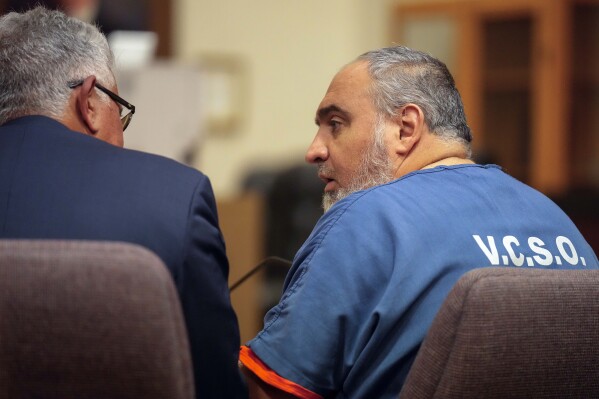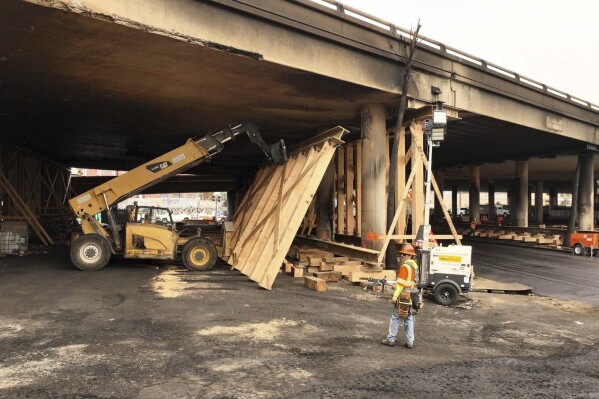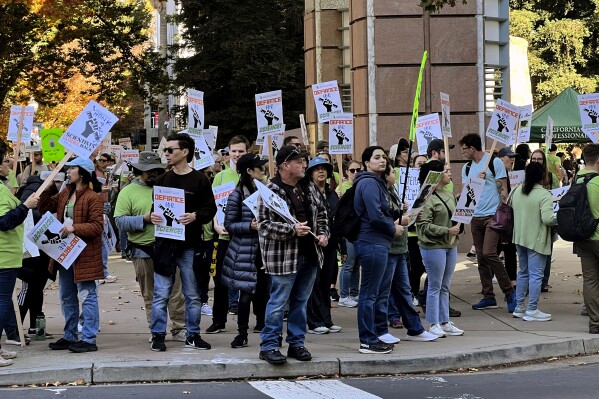California Democrats meet to consider endorsement in US Senate race ahead of March primary
SACRAMENTO, Calif. (AP) — California’s wide-open U.S. Senate race shifts to Sacramento on Saturday as the leading Democratic candidates work to woo activists in search of a state party endorsement ahead of the March primary.
U.S. Reps. Adam Schiff, Katie Porter and Barbara Lee, as well as former tech executive Lexi Reese will all make their case to hundreds of party delegates at the California Democratic Party’s annual fall convention. They’re seeking to fill the seat now held by Sen. Laphonza Butler, who was appointed when longtime Sen. Dianne Feinstein died in September. Butler isn’t seeking election.
The bar for a formal endorsement — 60% of the vote — is likely out of reach given the top three candidates are all sitting members of Congress with large bases of support. But the vote on Saturday night will offer a glimpse of how the party faithful views the top candidates, two of whom could meet in a head-to-head matchup in the general election should no Republican garner enough support to advance past the primary.
California’s primary system allows candidates of all parties to compete on one ballot, sending the top two vote-getters to the general election regardless of party. The state’s last two U.S. Senate races — in 2016 and 2018 — each featured two Democrats.
 Professor’s lawyer says video footage will clear his client charged in death of pro-Israel protester
Professor’s lawyer says video footage will clear his client charged in death of pro-Israel protester
 Los Angeles freeway closed after fire will reopen by Tuesday, ahead of schedule, governor says
Los Angeles freeway closed after fire will reopen by Tuesday, ahead of schedule, governor says
 California scientists seek higher pay in 3-day strike drawing thousands of picketers
California scientists seek higher pay in 3-day strike drawing thousands of picketers
The Senate candidates will each take turns speaking during a forum shortly before delegates cast their votes.
Schiff is widely seen as the front-runner, leading the candidates in fundraising and boasting a pack of influential endorsements — including the coveted blessing of former House Speaker Nancy Pelosi. Public polling, generally, has Porter second and Lee third. But a large chunk of voters is still undecided, making the race far from a sure thing.
An endorsement from the state Democratic Party can boost a campaign in a competitive primary, but it doesn’t necessarily signal how the wider electorate feels about the race as party delegates tend to be more liberal. In 2018, the state party endorsed then-state Sen. Kevin de Leon over Feinstein in the general election, though it did little to boost his candidacy. Feinstein won the general election handily.
“The endorsing convention is mostly symbolic and it can send a signal, when there is very unified support for a particular candidate, that there is strong momentum behind a particular candidate. But we often don’t see that,” said Matt Barreto, a University of California, Los Angeles political science professor who has worked in Democratic politics. “We often see splits, we see divisions.”
Endorsements aren’t the only thing Democrats will vote on this weekend as the party also considers updates to its platform. The Israel-Hamas war will likely be a topic of intense debate throughout the weekend. Party leaders have increased security for the convention, which comes a few days after police and protesters clashed outside of the Democratic National Committee headquarters in Washington.
“It simply reflects a recognition that we are in a tense moment, not just here in Sacramento, but around the nation and around the world,” California Democratic Party Chair Rusty Hicks said. “We want to ensure that everyone is safe, everyone feels safe, and they have the opportunity to have their voice heard.”
On Friday, a large crowd of protesters gathered outside of the convention hall in Sacramento to call for a cease-fire in Gaza. That kind of protest could benefit a candidate like Lee, who was the only Democrat to vote against war in Afghanistan following the Sept. 11, 2001, terrorist attacks.
“I think that will be one of the issues of this convention, this Israel-Gaza conflict and maybe that allows Barbara Lee to get a little more energy out of it,” said Andrew Acosta, a Democratic political consultant.
While the U.S. Senate race will get a lot of attention, party leaders say they are focused more on the congressional races the party needs to win to take back control of the U.S. House of Representatives. Hicks says the party plans to spend “in the multiple seven figures” on a handful of Congressional races, including targeting Republicans John Duarte and David Valadao in the Central Valley and Mike Garcia, Michelle Steel and Young Kim in Southern California.
“We have a special obligation when it comes to helping to retake the House of Representatives,” Hicks said. “The reality is, is that you can’t win the House if you don’t win seats here in California.”
Disclaimer: The copyright of this article belongs to the original author. Reposting this article is solely for the purpose of information dissemination and does not constitute any investment advice. If there is any infringement, please contact us immediately. We will make corrections or deletions as necessary. Thank you.


